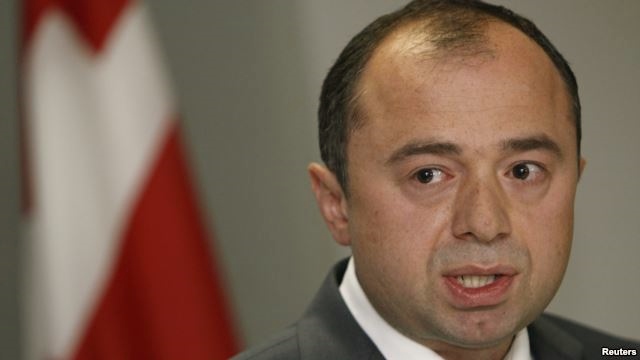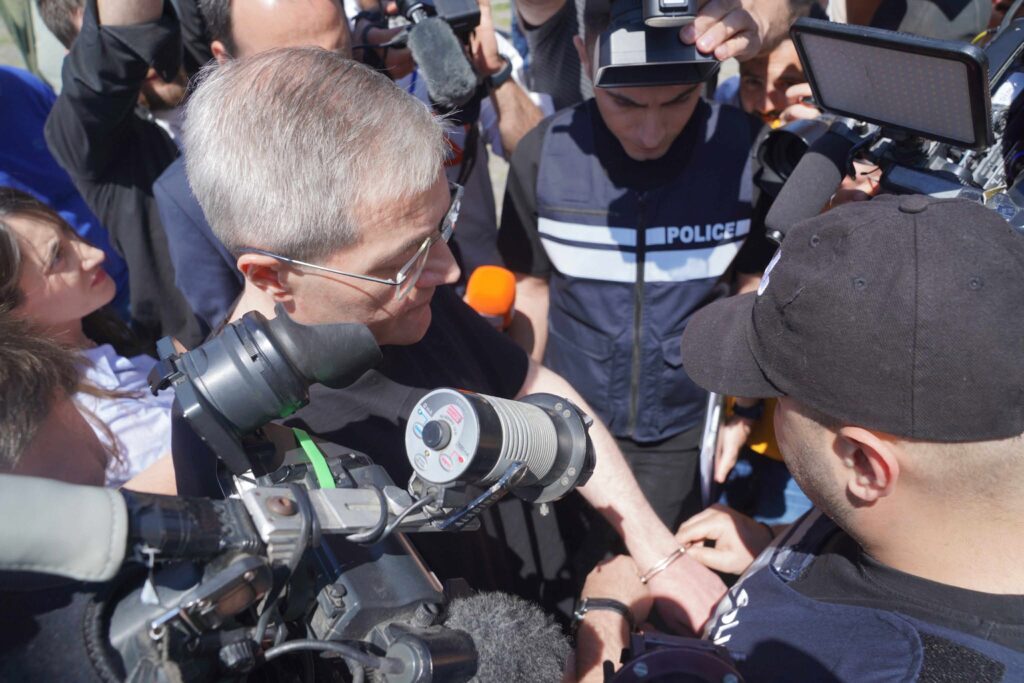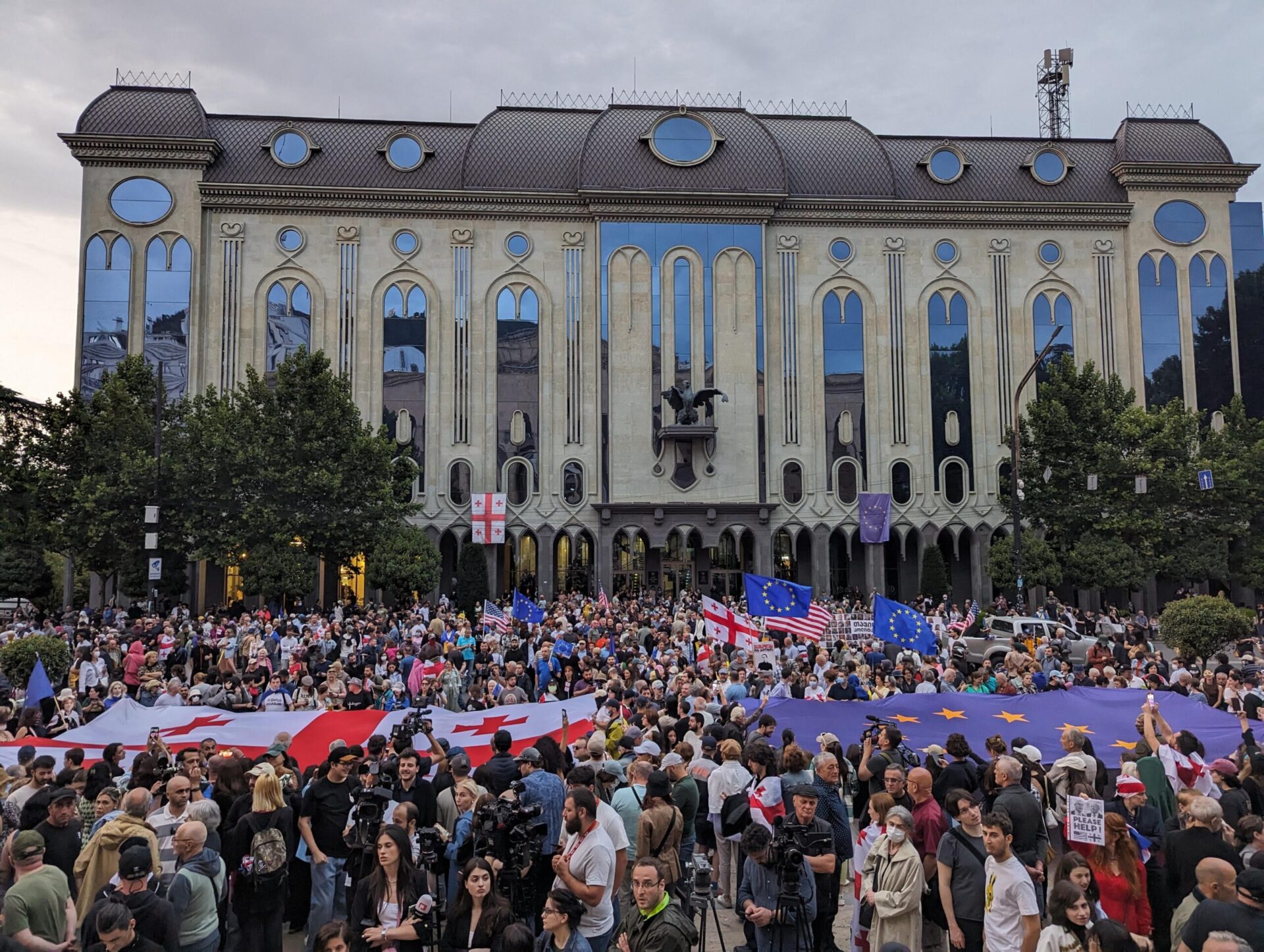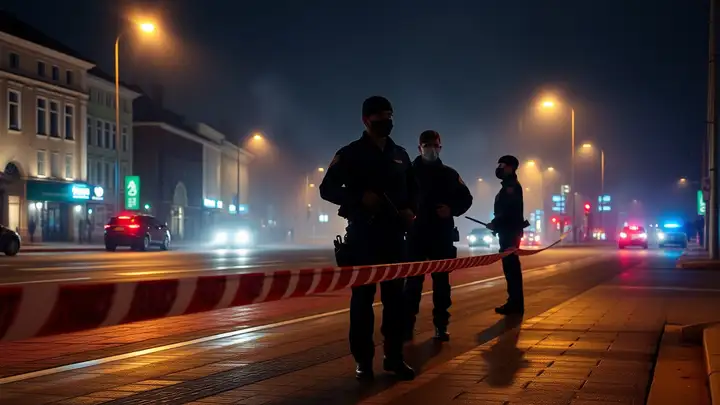
Georgia’s New Authorities Threaten to Investigate President Saakashvili and Allies
Georgia’s New Authorities Threaten to Investigate President Saakashvili and Allies
On March 31, Prosecutor General Archil Kbilashvili threatened to summon Georgian President Mikheil Saakashvili for questioning in at least three parallel criminal investigations. One of these would focus on the president’s responsibility for the 2008 war with Russia.
Separately, on April 1, Public Defender (Ombudsman) Ucha Nanuashvili called for a criminal investigation apparently targeting the opposition United National Movement’s (UNM) parliamentary leader, Vano Merabishvili. The Public Defender claims that Georgia’s Ministry of Internal Affairs had planned a terrorist raid across Russia’s border into Dagestan in 2012, at a time when Merabishvili was interior minister. These demarches contradict the United States’ and the European Union’s goals to ensure an “orderly transfer of power” and “co-habitation” between Prime Minister Bidzina Ivanishvili’s Georgian Dream government and Saakashvili’s UNM opposition.
Kbilashvili was Ivanishvili’s private lawyer prior to the October 2012 parliamentary elections. Ivanishvili appointed his lawyer as prosecutor general, and his bank manager, Irakli Gharibashvili, as internal affairs minister. These appointments have ushered in a wave of arrests and investigations against former UNM government officials, now in the opposition.
Saakashvili’s presidential term expires in October, and he has already given up some of his powers ahead of time (see EDM, March 27). But Ivanishvili’s team is pressuring Saakashvili to surrender his remaining powers or quit. This could precipitate Georgian Dream’s takeover of state and public institutions that are now beyond its control (High Council of Justice, Constitutional Court, Supreme Court, Chamber of Accounts, Intelligence Service, Army command, Public Broadcaster, Tbilisi City Hall). Being short of the two-thirds parliamentary majority necessary to impeach the president, Ivanishvili’s team is now threatening Saakashvili with criminal investigations, including one over the 2008 war with Russia.
In his March 31 televised interview in Tbilisi, extensively recycled by Russian media (Rustavi 2, April 1), Kbilashvili warned that his prosecutors might investigate Saakashvili about his knowledge of, or involvement in, three past events: 1) ownership changes at the Imedi television channel; 2) the outbreak of the 2008 war, to be investigated by a special commission; and 3) “another, entirely different matter that may also necessitate questioning him [Saakashvili], which we [Prosecutor’s Office] have not yet made public and I cannot as yet disclose.”
According to Kbilashvili, representatives of the prosecutions office from the International Criminal Court (ICC) in The Hague recently recommended that the new Georgian government investigate the 2008 war. “This is now our obligation. The former [Georgian] authorities dragged their feet for four years, showed no results. We now face a clear task: is the new Georgian government prepared to give a proper assessment to the August 2008 events and to answer, if war crimes and genocide occurred? We must set up an investigative group and proceed to investigate. I expect that the president will also be questioned.” Kbilashvili claims that presidential immunity does not protect Saakashvili from being questioned by prosecutors in a criminal case; and “he will definitely be questioned if the investigation deems this necessary.” On this and all the other counts, however, “the decision to question him has not been made yet. It may never be made, or it can be made soon” (Maestro TV, Imedi TV, March 31; Regnum, March 31; Rossiiskaya Gazeta, April 1; Nezavisimaya Gazeta, April 2).
Russian commentators readily connect Kbilashvili’s remarks about the ICC with the criminal cases previously initiated there by Russia’s government, South Ossetian authorities and a group of South Ossetian residents, accusing Georgia of war crimes. This remains Moscow’s position to date. For its part, the Georgian government in 2008 and thereafter concluded that Russia was the aggressor and that the Georgian population was forcibly evicted from that territory. Georgia’s new prosecutor general, however, is now deprecating that position and seems prepared to seek a different, “proper” assessment. He uses this tool to threaten Saakashvili, a drastic step he would not have taken without Ivanishvili’s approval.
Five features stand out in the prosecutor general’s demarche: partisanship arising from his political and personal links with Ivanishvili; the use of mass media by a law enforcement authority in a political context; no acknowledgment of presidential immunity; the public hint at raising as yet secret charges; and the suggestion that steps against the president might be held back if (as clearly understood in Tbilisi) the president quits, or at least surrenders his remaining powers, ahead of October. This would facilitate Georgian Dream’s takeover of remaining institutions that it does not as yet control.
Blaming Saakashvili’s government for the Russia-Georgia war of 2008 was one item in Georgian Dream’s electoral campaign package and Ivanishvili’s messaging to Moscow. The newly appointed public defender (since December 2012), Ucha Nanuashvili, is now echoing Moscow’s old theme about “Georgia being a haven for terrorists.”
On April 1, Nanuashvili told the Georgian parliament about an armed group of Chechens, purportedly organized by Georgia’s Ministry of Internal Affairs in 2012 to operate in Russia’s Dagestan. Citing allegations collected by his office, Nanuashvili claims that the ministry armed and trained a unit of 120 Chechens and other North Caucasus natives at the Vaziani base [i.e., next to United States personnel stationed there] and Shavnabada base in February 2012. According to this story, the cross-border mission was delayed until August, when some 20 of those Chechens headed for the Russian border on their own. Half of their number was killed en route by Georgian forces, and the remaining ones were escorted to Turkey. Nanuashvili has urged the parliament to set up an investigative commission and for the prosecutor general’s (Kbilashvili’s) office to investigate the officials who were in charge at the internal affairs ministry in 2012 (Civil Georgia, April 1).
Merabishvili, who was interior minister until July 2012 and is now the opposition UNM’s parliamentary leader, seems to be a primary target of this move. He has dismissed the story as “idiotic” and “in line with Russia’s propaganda aimed at portraying Georgia as a terrorist state” (Civil Georgia, April 1). In late August–early September 2012, the internal affairs ministry had announced that Georgian troops killed 11 gunmen while losing three of their own soldiers in a clash with North Caucasus infiltrators in the Lopota Gorge (Civil Georgia, The Messenger, September 4, 2012).
In contrast with Ivanishvili’s inner circle, Nanuashvili is no seasoned operator. His background is that of a human rights lawyer with naively pacifist convictions (he was the initiator of the “I Am Sorry” public petition). He is apparently being used politically by the government to hit at the opposition, as part of the Ivanishvili team’s effort to achieve a full takeover of state institutions.


